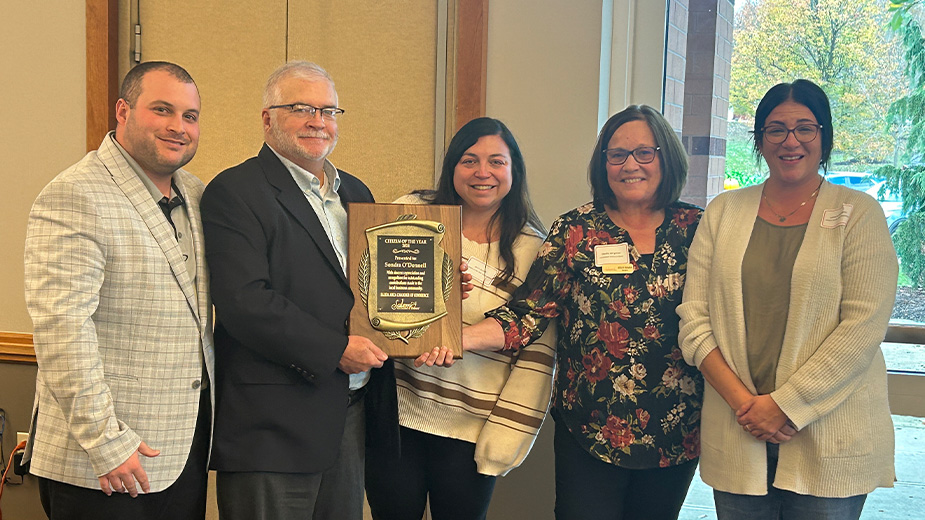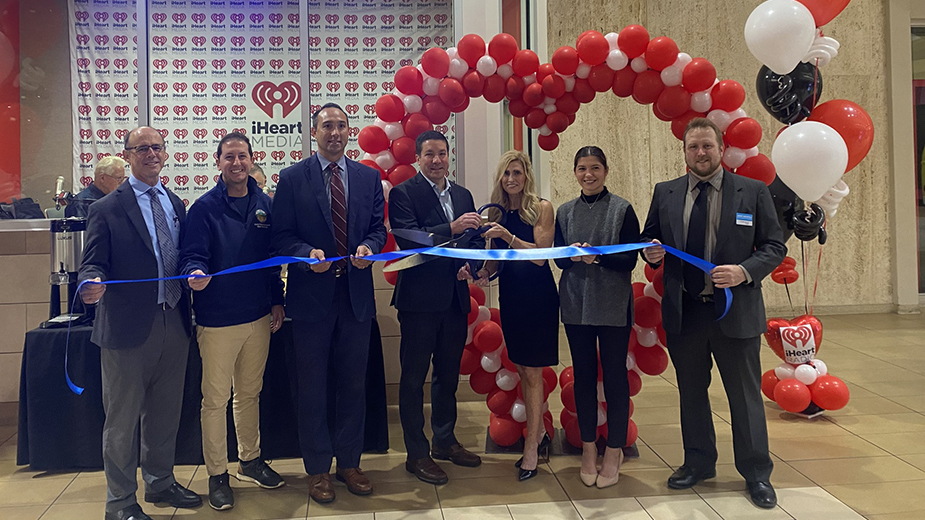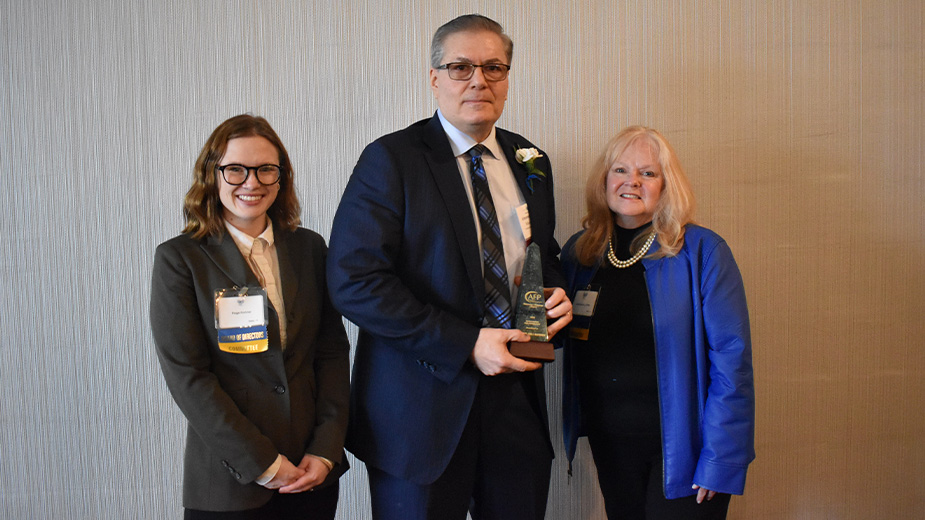Online Shopping Scams Among Most Likely, BBB Reports
By Marah Morrison
YOUNGSTOWN, Ohio – In today’s age of internet scammers and fraudsters, it’s no wonder that more than 50,000 scams were reported to the Better Business Bureau — and when consumers shop online, the likelihood of being scammed is high, says Carol Potter, president and CEO of the Better Business Bureau of Mahoning Valley.
According to the 2018 BBB Scam Tracker report, online purchase scams slipped to the second most risky, but the frequency was way up. Potter presented the results of the report during the sixth annual BBB annual meeting of Accredited Businesses Wednesday morning at the Davis Education & Visitor Center.
The BBB received more than 10,000 reports for online shopping scams last year, a 124% increase from 2017, Potter says. Exposure to such scams increased 20.6% and susceptibility was up 75.2%, according to the report. Median monetary loss fell to $75 from $100 in 2017.
Women have a slightly higher susceptibility risk to being scammed, 30.5% versus 29.1% for men, she said. However, the Scam Tracker found men have a higher median dollar loss, which is $222 compared to $120 for women.
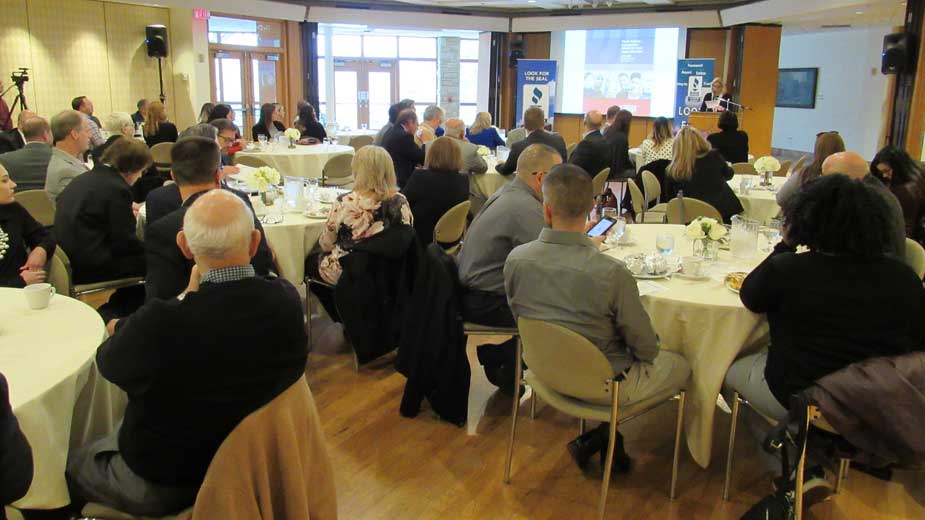
The most common products not delivered after payment include pets, automobile products, clothing and cosmetics, Potter added.
“Don’t buy anything on social media,” she advised. “If you’re on Facebook and you see something you’re interested in, get out of there, go to the company’s website and deal with them there. Because you’re putting all of this information out there and you have no idea where it’s being sold on the black market.”
Employment scams took the No. 1 spot in the 2018 BBB report because, on average, victims lost more money to those types of scams. Scammers take the time to prepare elaborate setups and find resumes online, Potter said.
“[Scammers] have in-depth interviews via Google Hangouts and they require candidates to complete employment forms with their own sensitive, personal information, making them open to future scams,” she said.
Scammers will also ask their targets to perform job duties, such as purchase equipment before the scam is discovered, she said. Such scams made up 9.1% of all scams reported to BBB’s Scam Tracker in 2018, she reported.
The BBB works to reduce the impact of scams to help consumers and legitimate businesses prosper in a trustworthy marketplace, Potter said. The Scam Tracker report is a critical part of its ongoing work to contribute new, useful data and analysis to further the efforts of all who are engaged in combating marketplace scams, she said.
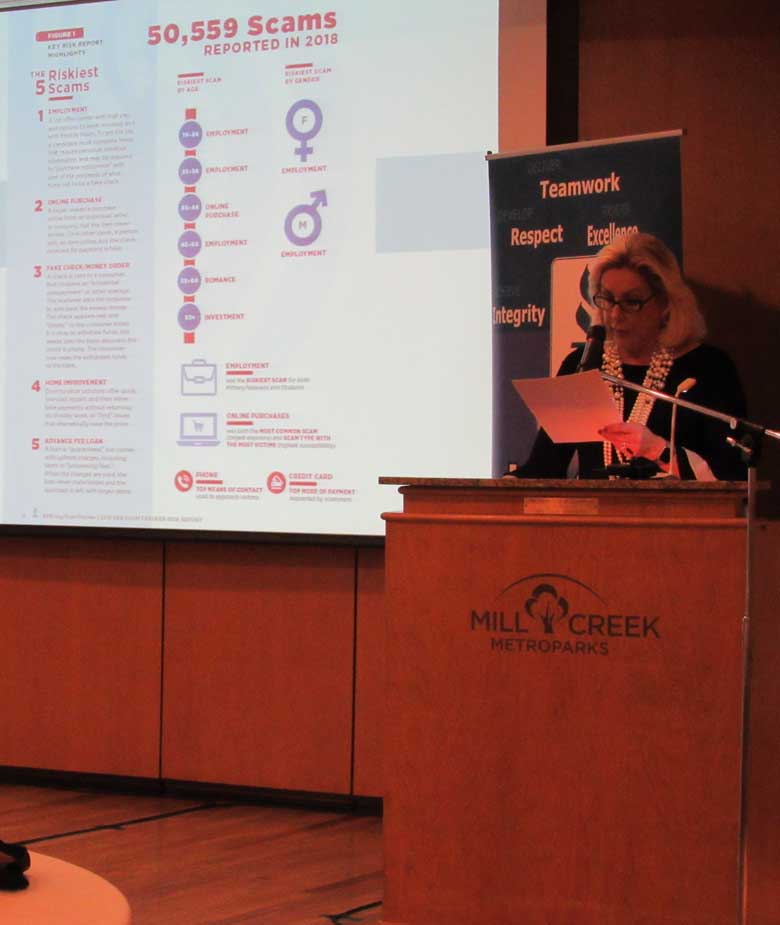
“When we get thousands of calls every year from people who are facing scams and frauds, we urge them to [go to our website] because this information is vital for all of us to learn how to protect ourselves,” Potter said.
A consumer who has been scammed not only has fewer dollars to spend in the market, but may also shy away from future engagement and commerce, Potter said. In addition, a business, whose trustworthy brand has been impersonated by scammers, may find consumers trust in its brand diminished.
Managing customers’ expectations can be tough, said Becky Wall, BBB’s chairwoman and vice president of Dearing Compressor and Pump Co. By living by the BBB standard, which includes building trust, advertising honestly and telling the truth, businesses can come through, she added.
“All of the companies here today live the BBB’s standards,” Wall said.
Nearly 100 business owners attended the annual meeting, which also celebrates trust in the marketplace and allows business owners to share stories of success, Potter said.
During the meeting, a video featured the BBB’s five “trust builders” – PNC Bank, Home Savings Bank, Huntington Bank, Farmers National Bank and Chemical Bank. These are the role models in the marketplace, Potter said.
“They tell success stories of how within each banking institution how trust is integral to successful business relationships,” she said. “Those are the stories that we share today.”
Copyright 2024 The Business Journal, Youngstown, Ohio.
